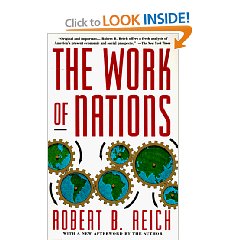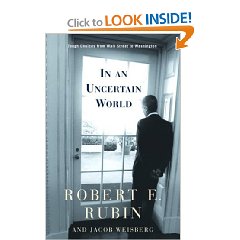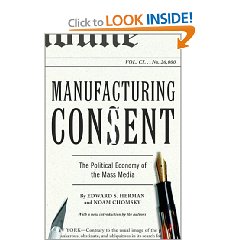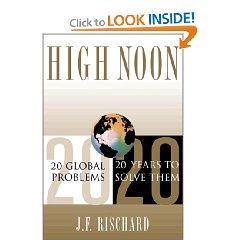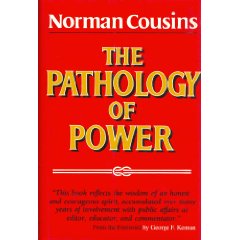This book complements Barbara Ehrenreich's book Nickel and Dimed: On (Not) Getting By in America Ehrenreich's is much easier to read and makes the same broader points. Where this book excels is in the details that in turn lead to policy solutions. I will go so far as to say that if John Kerry and John Edwards do not get hold of an executive summary of this book, and integrate its findings into their campaign as a means of mobilizing the working poor in the forthcoming election, then they will have failed to both excite and serve what the author, David Shipler, calls the “invisible.”
Invisible indeed. How America treats its working poor–people working *very* hard and being kept in conditions that border on genocidal labor camps, is our greatest shame.
The most important point made in this book, a point made over and over in relation to a wide variety of “case studies”, is that one cannot break out of poverty unless the **entire** system works flawlessly. To hard work one must add public transportation, safe public housing, adequate schooling and child care, effective parenting, effective job training, fundamental budgeting and arithmetic skills, and honest banks, credit card companies and tax preparation brokers, as well as sympathetic or at least observant employers. The author is coherent and compelling in making the point that a break or flaw in any one of these key links in the chain can break a family.
I am personally appalled at the manner in which H&R Block, to name the largest within an industry, and Western Union, to name another, are ripping off the working poor with a wide variety of “surcharges” such that they end up paying 25% of their tax return or their funds transfer back to Mexico. This is both usury and treason if you want to look at it in the largest sense. They are sabotaging the American economy in a time of war.
It surprised me to learn that while hospitals are forced to treat the poor in an emergency, they are also allowed to bill them, and these bills, for an ambulance ride or emergency treatment, often are the straw that breaks a family into destitution. This is outrageous and should not be permitted. Then the author tells us that it costs as much as $900 for a working poor family to declare bankruptcy and obtain the protection of the law from creditors, many of whom are cheats in the larger sense of the world. How can this be?!?!
It did not surprise me, but continues to distress me, to learn that the laws are not enforced. Although laws exist about minimum wage, humane working conditions (and humane living conditions for migrant workers), they are not enforced. The working poor are treated as less than slaves, for they are “used up and thrown out” with no defense against unfair firing. They are forced to work “off the books”, to do piece rate work at below minimum wage, this list goes on. In essence, our politicians have passed laws that make us feel good, and then failed to enforce them so as to achieve the desired effects.
The author documents both the jobs leaving the US, and the fact that new jobs pay less. As Paul O'Neil, former Secretary of the Treasury has noted, we have two economies in America: one embraces automation (and kills jobs), the other requires expert labor (not the working poor). We have a double-whammy here that is totally against the lower half of the economic spectrum, and it is being aggravated by an incoherent immigration policy that feeds the beast.
On page 139 the author just blew me away with documentation to the effect that 37 percent of American adults cannot figure a 10% discount on a price, even with a calculator, nor can this same percentage read a bus schedule or write a letter about a credit card error. He goes on, citing the National Adult Literacy Survey from the Department of Education, to note that 14% of adult Americans cannot total a deposit slip, locate an intersection on a map, understand an appliance warranty, or determine the correct dosage of a medicine. I had no idea!!! This reality comprises a “sucking chest wound” in the economic body of America, and it is not a chest wound that can be healed as things now stand.
There are many other daunting “facts of life” in this book about the working poor, and they all add up to a complete failure of both the national and state leaderships to be serious about long-term sustainable economic prosperity.
The author concludes with some suggestions for reform, and here I wish he had actually gone to the trouble of creating a one-page policy paper summing it all up. His most obvious suggestion is wage reform, not just at the bottom, but also at the top. As I read and hear about executives making $5 million to $80 million a year, the norm seeming to be around $20 million, I have to ask myself, have we gone nuts? Are stockholders so stupid as to overlook the fact that capping executive compensation at 100X the pay of the lowest employee ($20,000 low end, $2,000,000 high end) would do *huge* good at the bottom and in the lower middle ranks? The extreme wealthy in America are playing a short-term game that must be brought to an abrupt halt because it is killing the people, the seed corn of the future.
The Earned Income Tax Credit *works* but most of the working poor are afraid to file income tax returns.
The author ends, quite correctly, by pointing out that the ideological debate, removed from the facts, will not alleviate nor eliminate the suffering of the working poor. Right on. It's time for the facts, for a public debate about the facts, and for public policy (and enforcement) based on the facts. This author, already a Pulitzer Prize winner, has rendered a great national service.
See also, with reviews:
Off the Books: The Underground Economy of the Urban Poor
War on the Middle Class: How the Government, Big Business, and Special Interest Groups Are Waging War onthe American Dream and How to Fight Back
The Global Class War: How America's Bipartisan Elite Lost Our Future – and What It Will Take to Win It Back
The Battle for the Soul of Capitalism: How the Financial System Underminded Social Ideals, Damaged Trust in the Markets, Robbed Investors of Trillions – and What to Do About It



